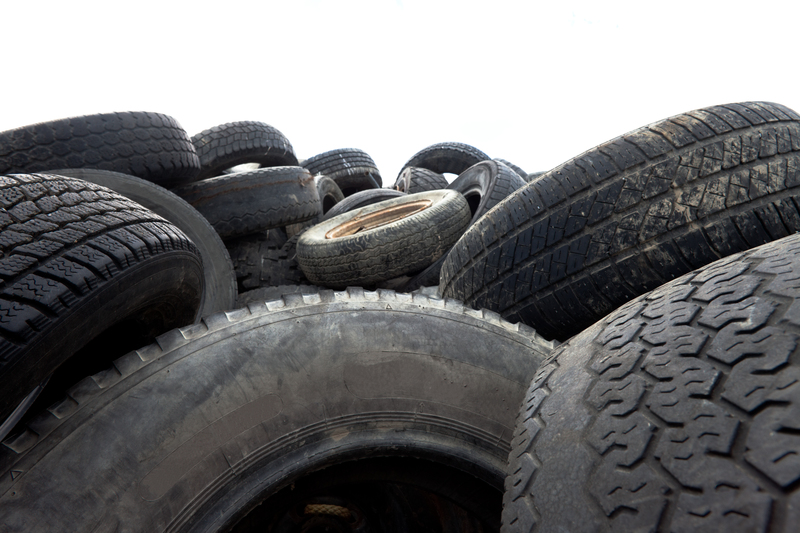Reclaim Your Space: Effective Clutter and Hoarder Clean Up
Is your home becoming difficult to navigate? Do you feel overwhelmed by the amount of stuff accumulating in your living space? You're not alone. Millions of people struggle with excess possessions, clutter, or even hoarding behaviors. The good news is, you can reclaim your space with practical strategies and the right mindset. This comprehensive guide will walk you through everything you need to know about effective clutter and hoarder clean up. Discover tips, understand the psychology behind hoarding, and learn how to restore order--and peace--to your home.

Understanding Clutter and Hoarding
What Is Clutter?
Clutter is the accumulation of items that are unorganized, unnecessary, or no longer useful. It can range from old magazines, broken electronics, unworn clothes to unopened mail. While a bit of mess is natural, excessive clutter can:
- Contribute to stress and anxiety
- Reduce your living space
- Make cleaning difficult
- Even pose safety or health hazards
What Is Hoarding?
Hoarding is a behavior marked by persistent difficulty discarding or parting with possessions, regardless of actual value. This results in over-stuffed, unsafe, and sometimes even unsanitary living conditions.
Common Items People Hoard
- Old newspapers, magazines, mail
- Clothes and textiles
- Household goods and kitchenware
- Books and paperwork
- Trash and recyclables
- Animal hoarding (pets)
It's important to recognize that hoarding disorder is a mental health issue. People with hoarding tendencies might need support, compassion, and sometimes professional help. But whether your challenge is simple clutter or severe hoarding, rest assured that hoarder clean up is possible, and your home can be transformed.
Why Reclaiming Your Space Matters
A clean, organized space isn't just aesthetically pleasing. Reclaiming your space has significant benefits for your health, wellbeing, and quality of life, such as:
- Reducing stress and mental fatigue
- Improving mood and motivation
- Lowering the risk of falls, injuries, or infestations
- Enhancing resale value of your property
- Saving time otherwise spent searching for items
- Creating a welcoming environment for yourself and guests
If your clutter is impacting your daily life, it's time to take action. Let's explore how to effectively clean up hoarding and clutter, step by step.
Effective Clutter and Hoarder Clean Up: Step-by-Step Guide
1. Acknowledge the Issue
You can't solve what you don't see. Admit there's a problem and commit to finding a solution. Whether you're facing your own clutter or helping a loved one, approach the process with empathy and patience.
2. Set Clear Goals
Define what a "clean" space looks like for you. Think about:
- Which rooms need to be addressed?
- What's your timeline--a weekend, a month, or longer?
- What is your ideal outcome? (For example: clear hallways, open surfaces, or functional rooms)
3. Gather Supplies
Having the right tools makes everything easier. For effective clutter removal and hoarder clean up, you might need:
- Heavy duty trash bags
- Cardboard boxes for sorting
- Gloves, masks, hand sanitizer
- Cleaning products (disinfectants, all-purpose cleaners, etc.)
- Labeling stickers or markers
- Storage containers or bins
4. Start With Easy Wins
Begin in a small, manageable area--like a closet or bathroom. Finishing one spot gives you a sense of progress and motivation to continue. Here's how:
- Clear out everything
- Wipe down shelves and surfaces
- Sort items as you go
5. The Four-Box Method
This classic decluttering technique streamlines clean up. Label four boxes or bags as:
- Keep - Items you use and love
- Donate - Good condition, but no longer needed
- Sell - Things with value you're willing to move on
- Trash - Broken, expired, or unsalvageable items
As you sort, ask yourself: Do I really need this? When did I last use it? Does it have sentimental value--or am I keeping it out of guilt?
6. Tackle High-Impact Areas
Once you've built confidence, move to higher traffic and heavily cluttered zones:
- Hallways and entrances
- Living room and kitchen counters
- Stairs and emergency exits
- Bathrooms and bedrooms
7. Deep Clean and Sanitize
After decluttering, thoroughly clean all surfaces, floors, and fixtures. Pay attention to:
- Dust build-up behind furniture
- Appliance interiors
- Baseboards, vents, and corners
- Carpets and upholstery
8. Organize What Remains
Sort your keepsakes and essentials into clear, labeled containers. Store them where they're easy to access but out of the way. Some tips:
- Use vertical shelves for books, storage, and decor
- Install hooks for bags, keys, and coats
- Utilize under-bed boxes for linens or out-of-season clothes
- Keep flat surfaces as clear as possible for visual calm
9. Safely Dispose or Donate Unwanted Items
Check your local regulations for trash, recycling, furniture, and hazardous material disposal. Many charities will pick up gently-used items. If you're cleaning up after hoarding situations, you may need:
- Roll-off dumpsters
- Junk removal services
- Hazardous waste disposal (for chemicals, paint, or batteries)
10. Consider Professional Hoarder Clean Up Services
Sometimes, the job is just too big, emotionally charged, or hazardous to tackle alone. Professional hoarder clean up companies specialize in safe, discreet, and efficient clearing of even severe hoard situations. Benefits include:
- Specialized equipment and know-how
- Biohazard and mold treatment
- Emotional support and guidance
- Compliance with legal and environmental standards
Psychological Tips for Decluttering and Hoarder Clean Up
Getting rid of possessions is often more emotional than physical. Here are some tips to make the process less stressful:
- Practice self-compassion: Let go of guilt about things you own, bought, or inherited.
- Set boundaries: If helping someone else, be patient and respect their pace.
- Break it down: Clean up one room, corner, or drawer at a time.
- Ask for support: Enlist friends, family, or professionals as needed.
- Celebrate progress: Take photos before and after to see how far you've come.
Frequently Asked Questions (FAQs) About Hoarder and Clutter Clean Up
Q: How do I help a loved one with hoarding?
A: Start with empathy, not judgment. Encourage small steps. Offer to help sort, but avoid forcing decisions. If necessary, suggest counseling or a support group.
Q: Is hoarder clean up expensive?
A: DIY cleaning can be free except for disposal fees. Professional hoarder clean up services range in price depending on home size, severity, and hazards involved. Always get a clear estimate upfront.
Q: How can I stay clutter-free after cleaning up?
A: Adopt the "one in, one out" rule--if you buy something new, donate or toss something old. Regularly schedule quick decluttering sessions monthly.
Q: Are there health hazards in hoarder clean up?
A: Yes--mold, bacteria, rodent droppings, insect infestations, and sharp objects can make hoarder clean up dangerous. Always wear protective gear and consider professionals for serious cases.
Benefits of Professional Clutter and Hoarder Clean Up Services
For some, the sheer scale of the mess can feel insurmountable. That's where hoarder cleaning services come in. The pros can reclaim your space faster, safer, and more efficiently than solo attempts. Key benefits include:
- Risk reduction (exposure to toxins, sharp objects, or biohazards)
- Faster project completion - sometimes in as little as a day or two
- Waste removal and legal compliance
- Emotional support and discretion
- Restorative deep cleaning and, if needed, remediation

Maintaining a Clutter-Free Home: Long-Term Strategies
Congratulations! Once your space is clear, learn to keep it that way. Consider these habits:
- Assign every item a "home"
- Adopt a minimalist mindset
- Limit impulse purchases
- Regularly donate or sell unused belongings
- Use calendars or reminders for routine cleaning
Final Thoughts: Take Back Your Freedom
Living in a clean, organized space is possible for everyone--even after years of hoarding or clutter. With patience, the right strategies, and sometimes a little help, you can reclaim your space and enjoy a more peaceful, productive lifestyle. Take that first step today: your home will thank you, and so will your future self!
Ready to Get Started?
Don't wait for someday--begin your clutter and hoarder clean up journey now. Share your own tips, progress, or questions in the comments below. Together, we can inspire others to embrace a clutter-free future!